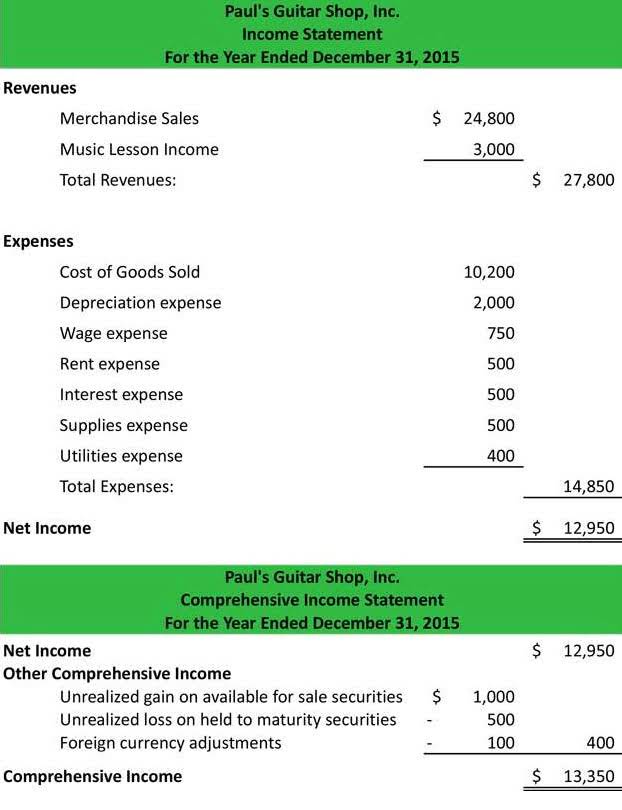
Liabilities, equity, and revenue increase when you credit the accounts and decrease when you debit them. Besides improving cash flow, we can prepare financial statements, create a practical budget and handle your month-end closings. Between deductions, capital gains taxes, self-employment taxes, and more, there’s a lot to navigate. Misunderstanding or accounting for real estate transactions overlooking these issues can result in overpaying taxes or running into legal trouble with the IRS. You’ll have a better grasp of your property’s profitability and can fine-tune your property management to help increase cash flows and profits. The cash method of accounting reports income at the time it is received and bills at the time they are paid.
- Now that you know the importance of strong real estate accounting and what to expect regarding trackable financial information, it’s time to take a closer look at best practices.
- Finally, we examined some of the best practices to put in place for successful real estate accounting.
- Real estate agents also accrue these business expenses daily—which means you can easily get overwhelmed if you don’t have a system in place.
- Accounting and bookkeeping are crucial in the real estate sector, but many real estate agents make common accounting mistakes that can impact business accounts.
- It incorporates principles of accounting, budgeting, and financial reporting specific to the real estate industry.
Debt and Equity
Real estate accounting refers to the monthly and yearly financial tasks a business owner must perform to keep their operations running smoothly. More specifically, real estate accounting deals with the potential revenue generated by properties and matters of taxation, including crucial real estate agent tax deductions. When you buy or sell goods and services, you must update your business accounting books by recording the transaction in the proper account.

Expense accounts

In this short article, we explored the key aspects of real estate accounting. We looked at the fundamentals of real estate accounting and then moved to discussing the differences between accounting and bookkeeping. Finally, we examined some of the best practices to put in place for successful real estate accounting. Streamline your small business’s accounting work with FreshBooks real estate accounting software. Its features include modern invoicing, late payment reminders, interactive team collaboration, and more. Now that you know the importance of strong real estate accounting and what to expect regarding trackable financial information, it’s time to take a closer look at best practices.
Liability accounts
- All you need do is engage with us via our teleconference channel and have your real estate transaction reviewed by our skilled attorneys.
- You can set up sub-accounts for insurance (e.g., general liability insurance, errors and omissions insurance, etc.) to further break things down.
- Keeping track of your different types of accounts in accounting can be a challenge.
- This publication is not a substitute for such professional advice or services, nor should it be used as a basis for any decision or action that may affect your business.
- From there, delve into more complex topics like depreciation, debt, equity, and tax planning.
If you lack clear balance sheets and P&L statements, it may take longer to file your business taxes. Good accounting habits can make the tax process easier and faster—while also optimizing your tax deductions. With a thorough understanding of real estate accounting principles, professionals can make informed decisions and maintain the financial health of their real estate investments. Implementing effective accounting software is essential for improving the financial management processes of a business.
If you’re looking for an affordable solution to your accounting needs, you may want to consider looking at our accounting templates. These templates greatly simplify the accounting process for small business owners and real estate investors by offering easy-to-understand layouts and a streamlined design. Although fairly basic, your duties might require using standard office supplies, https://www.bookstime.com/articles/what-is-noncumulative-preferred-stock equipment, and other administrative tools. Larger expenses include office rentals, event space, and recurring services such as cleaning or maintenance. As more real estate professionals operate in a mobile format, these costs may be minimal. Depending on employment status, real estate agents may be required to share some of their commission as a percentage with a brokerage or firm.
Skills you need for real estate accounting
From bookkeeping to tax consultations and filings, the Pros can help. Depending on your state landlord-tenant laws, a landlord may also be required to hold tenant security deposits in a separate bank trust account. You’ll finally have the time to devote to scoping new acquisitions and expanding your portfolio when your finances are well taken care of by REPAG. “New York can continue to tax you if it’s deemed that you are domiciled in the state of New York, and that is a bit of a subjective determination based on a variety of factors,” Petrucci said.
Real Estate Tax Services Accounting Audit Consulting Services Real Estate Services – EisnerAmper
Real Estate Tax Services Accounting Audit Consulting Services Real Estate Services.
Posted: Wed, 01 Nov 2023 16:30:15 GMT [source]
State-level estate taxes are playing a role in moves as well, Petrucci noted. To reflect this transaction, credit your Investment account and debit your Cash account. Accounting Website by Build Your Firm, designers and developers of Search Engine Optimized websites for accountants and CPA firms.
File with Taxfyle.
Addressing Accounting Needs in Real Estate Business



